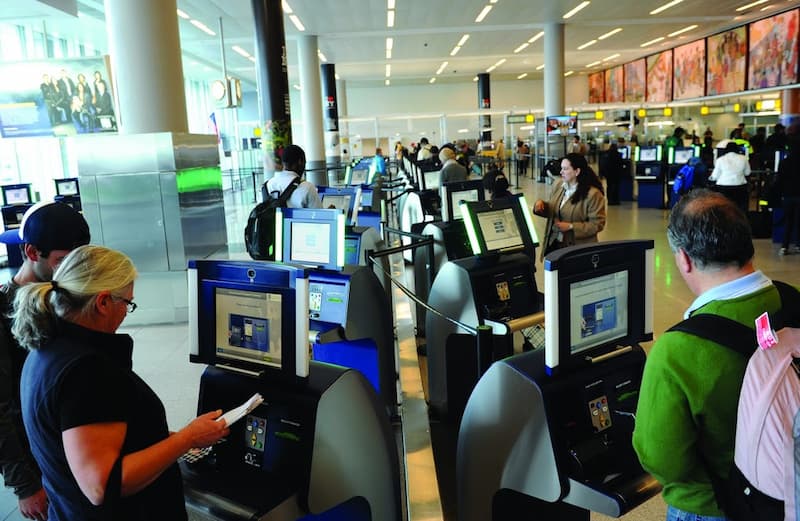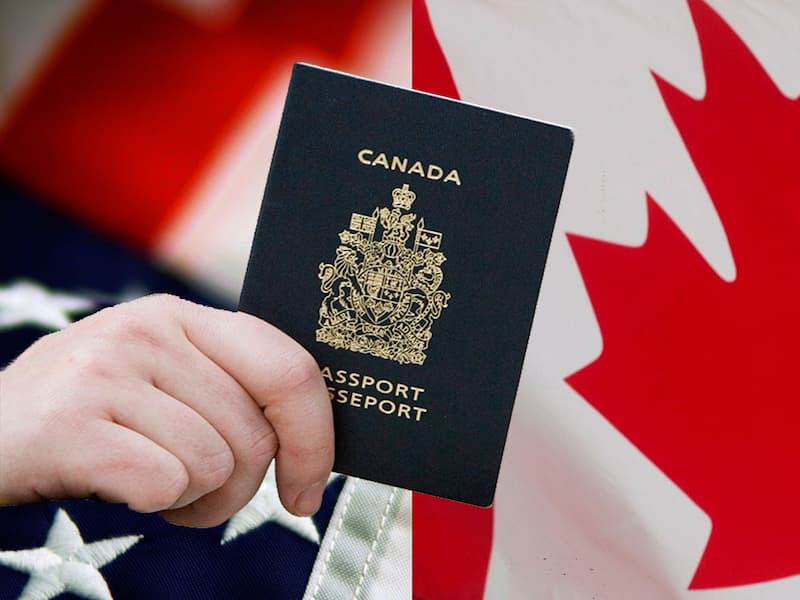Get free consultation
Fill out the form and we will contact you
Entering Canada is a crucial step in your journey for tourism, business, or study. Completing the electronic declaration form helps save time and ensures compliance with Canada's government regulations. In this article, quoctichthuhai.com will guide you on how to complete the electronic entry declaration for Canada and highlight important considerations to avoid mistakes during the entry process.
When completing the electronic entry declaration for Canada, there are several important conditions you must comply with:
The Canada entry declaration form requires all fields to be filled out in uppercase letters (e.g., ABC) and does not allow the use of lowercase letters. Each blank space corresponds to a single character, so be sure to enter the information carefully to avoid errors.
Information for the Electronic Entry Declaration to Canada Must Be in Uppercase Letters
If you are traveling with family or a group of friends who share the same address, you can complete the entry declaration for up to 4 people. However, according to Canada's electronic entry declaration regulations, each individual is still responsible for their own declaration.
If you are carrying cash or valuables with a total value of 10,000 CAD or more, you must clearly declare them. Ensure compliance with Canada's regulations on financial management and imported goods.
Each individual is responsible for their own declaration. Providing false information or attempting to deceive may result in fines, being placed on a blacklist, or even being denied entry into Canada.
When completing the electronic entry declaration for Canada, you will need to fill out four main sections of the form: Part A, Part B, Part C, and Part D.
Part A includes general information about you and those sharing the same address. You can declare up to 4 people, and remember to use uppercase letters when entering accurate information.
Last name, first name, and initials: Enter your name in the order of First Name – Last Name – Middle Name. For example, if your name is Nguyễn Văn Thái, you should write: THAI NGUYEN VAN.
Date of birth: Enter your birthdate in the international format YY – MM – DD. For example, if you were born on June 14, 1976, enter: 76 - 06 - 14.
Citizenship: Enter your current nationality, e.g., VIETNAM.
Home address (in Vietnam): Provide your full home address in Vietnam, including: Number, street, apartment No.: House number and street name; City/Town: The city where you reside; Prov./State: The province or centrally governed city.
Postal/Zip code: Enter the postal code (e.g., 70000).
The information in the electronic entry declaration for Canada must be accurate
Arriving by (Mode of Entry): Select the mode of transportation you are using to enter Canada (e.g., ship, airplane, bus, etc.).
Purpose of trip: Choose the purpose of your trip: Study – Studying in Canada; Personal – Tourism, visiting family, or medical treatment; Business – Business-related travel.
Arriving from (Departure Location): Select your departure country: U.S. only – Directly arriving from the United States; Other country direct – Arriving directly from a country other than the U.S. (select this if coming from Vietnam); Other country via U.S. – Arriving from another country with a transit stop in the U.S.
I am/we are bringing into Canada (Items Being Carried): Declare if you are bringing any of the following items: Firearms or other weapons – Declare if carrying any weapons; Commercial goods – Includes trade goods, tools, or professional equipment; Food items – Includes meat, fruits, fish, or other food products; Currency and/or monetary instruments – Declare if carrying cash or valuables worth over 10,000 CAD.
Part B is for individuals traveling to Canada for tourism or business purposes. You need to provide information about your temporary stay in Canada and declare whether you are bringing items that exceed the duty-free allowance.
Part C is for individuals who are residents of Canada. You must declare whether you are carrying items that exceed the duty-free allowance, such as tobacco, alcohol, or gifts.
Part D requires you and any accompanying travelers to sign the form to confirm that the information provided is accurate and complete. If you are 16 years or older, you must sign and date the declaration form when entering Canada.
Members aged 16 and older must sign the entry declaration form for Canada.
With the latest changes, when entering Canada, you should take note of the following:
To enter Canada, you must have a valid visa (unless you are exempt) and a passport valid for at least six months. The Canada entry declaration form is also a crucial part of the entry process.
Your Canada Entry Visa Must Be Valid for at Least 6 Months
If entering Canada by air, you will go through border control and follow the electronic entry declaration steps mentioned above. Alternatively, you can request a paper form at the immigration counter to complete the declaration manually.
The cost of applying for a Canadian entry visa depends on the purpose of your trip: Tourists: Approximately 100 CAD; Students or workers: Approximately 150 CAD.
If entering Canada by cruise ship or other sea transport, in addition to declaring personal information, you must also declare any goods being brought into the country and comply with all entry regulations.
Ensuring an accurate electronic entry declaration is crucial to meeting Canada's reporting requirements, declaring carried items properly, and avoiding unnecessary errors.
If you need professional support for entry procedures or services related to citizenship and visas, contact quoctichthuhai.com. We provide citizenship-by-investment programs for Canada, European countries, and Caribbean islands.
Fill out the form and we will contact you




